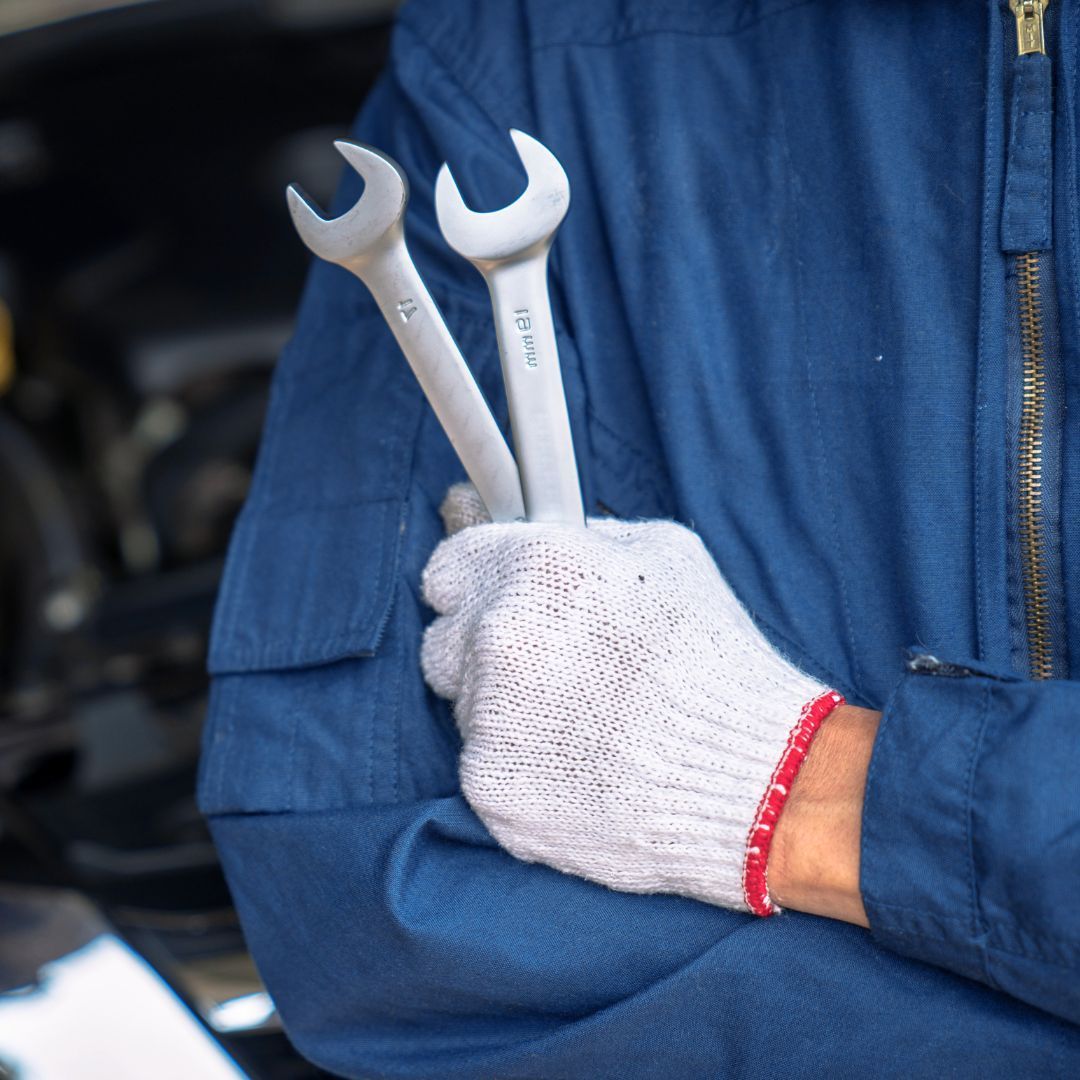How to Get Insurance to Pay for Water Damage
See How We're Different
or call us: 763-242-1668
Water damage can be a nightmare for homeowners. Whether it's from a burst pipe, a leaky roof, or a natural disaster, the aftermath of water damage is stressful and expensive. Fortunately, if you have homeowner's insurance, you may be able to get financial assistance to help cover the costs of repairs. In this article, we will break down the steps you need to take to get insurance to pay for water damage.
Understanding Your Homeowner's Insurance Policy
Before you can get your insurance company to pay for water damage, it's crucial to have a clear understanding of your homeowner's insurance policy. Policies can vary, so it's essential to review your policy documents carefully and familiarize yourself with the coverage it provides.
When it comes to protecting your home and belongings, homeowner's insurance is a vital tool. It provides financial protection against unexpected events, such as fire, theft, and water damage. However, understanding the specifics of your policy is crucial to ensure you have the coverage you need.
Homeowner's insurance policies typically cover sudden and accidental water damage, such as burst pipes or plumbing leaks. This coverage can help you repair or replace damaged property and belongings. However, it's important to note that policies may not cover damage caused by negligence or lack of maintenance.
What Does Your Insurance Policy Cover?
The first step is to determine what your insurance policy covers. Most homeowner's insurance policies cover sudden and accidental water damage, such as burst pipes or plumbing leaks. However, policies may not cover damage caused by negligence or lack of maintenance. Some policies may also include coverage for flooding or water damage caused by storms or natural disasters.
Understanding the specific coverage provided by your policy is essential. It's a good idea to carefully read through your policy documents and make note of the covered perils and exclusions. This will help you know what to expect in case of water damage and ensure you have the necessary coverage.
Additionally, it's important to be aware of any endorsements or riders that may have been added to your policy. These are additional coverages that you may have purchased to enhance your protection. For example, you may have added coverage for sewer backup or sump pump failure, which can be common causes of water damage.
Limitations and Exclusions in Insurance Policies
It's crucial to be aware of the limitations and exclusions in your insurance policy. While homeowner's insurance provides valuable protection, there are certain situations and damages that may not be covered.
Some policies may have certain exclusions, such as damage caused by a slow leak or mold growth. These types of damages can be costly to repair and may require additional coverage or specialized policies. It's important to understand the specific exclusions in your policy to avoid any surprises when filing a claim.
Additionally, your policy may have coverage limits or deductibles that you need to consider. Coverage limits refer to the maximum amount your insurance company will pay for a covered loss. Deductibles, on the other hand, are the amount you are responsible for paying out of pocket before your insurance coverage kicks in.
Understanding the limitations and exclusions, as well as the coverage limits and deductibles, will help you make informed decisions when it comes to protecting your home and belongings. It's always a good idea to consult with your insurance agent or company to clarify any questions or concerns you may have about your policy.
Steps to Take Immediately After Water Damage
When water damage occurs, it's crucial to take immediate action to mitigate the damage and secure your property. Here are the steps you should take:
Documenting the Damage
Start by documenting the damage. Take photos or videos of the affected areas and items to provide evidence of the water damage. This documentation will be essential when filing an insurance claim.
When taking photos, make sure to capture the extent of the damage from different angles. This will help your insurance company assess the situation accurately and expedite the claims process. Additionally, it's a good idea to include any valuable items that have been affected by the water damage in your documentation. This will help you receive proper compensation for your losses.
Contacting Your Insurance Company
Notify your insurance company as soon as possible about the water damage. Provide them with all the necessary information, such as the date and cause of the damage and a detailed description of the affected areas. They will guide you through the next steps and provide you with the necessary forms to start the claims process.
When contacting your insurance company, be prepared to provide them with any relevant policy information, such as your policy number and coverage details. This will help expedite the process and ensure that you receive the assistance you need in a timely manner. It's also important to keep a record of all communication with your insurance company, including the names of the representatives you speak with and the dates and times of your conversations.
During your initial conversation with your insurance company, they may also provide you with recommendations for water damage restoration companies in your area. These companies specialize in mitigating water damage and can help prevent further damage to your property. It's important to follow their advice and take immediate action to prevent mold growth and structural issues.
Filing a Water Damage Insurance Claim
Once you have notified your insurance company about the water damage incident, it's time to take the next step and file a water damage insurance claim. This process can seem overwhelming, but by following these steps, you can ensure a smooth and efficient experience.
Preparing the Necessary Documentation
Gathering all the required documentation is a crucial step in filing a water damage insurance claim. These documents will serve as evidence to support your claim and help the insurance company assess the extent of the damage. Start by organizing all the photos or videos you took of the damage. These visual records will provide a clear visual representation of the affected areas and the severity of the water damage.
In addition to visual evidence, it's important to gather any receipts or invoices for emergency repairs or temporary accommodations. If you had to hire professionals to mitigate the damage or if you had to stay in a hotel while your home was uninhabitable, these expenses can often be reimbursed by your insurance company. Make sure to keep track of all the relevant documents requested by your insurance company, such as incident reports or repair estimates.
Once you have gathered all the necessary documentation, it's time to submit them along with your claim. Make sure to organize the documents in a clear and logical manner, providing a comprehensive overview of the damage and the associated costs. This will help the insurance company process your claim more efficiently and accurately.
The Process of Filing a Claim
When filing a water damage insurance claim, you will need to complete the necessary forms provided by your insurance company. These forms are designed to collect accurate and detailed information about the damage, allowing the insurance company to assess the situation properly.
Start by providing a thorough description of the damage, including the cause and the extent of the water intrusion. Be as detailed as possible, describing the affected areas, the type of water damage (e.g., flooding, burst pipe), and any visible signs of structural damage or mold growth. Include information about the materials or belongings that were damaged, such as furniture, electronics, or personal items.
In addition to describing the damage, it's important to include an estimate of the repair costs. This can be obtained by consulting with professionals who specialize in water damage restoration. Providing an accurate estimate will help the insurance company determine the financial compensation you are eligible for.
Throughout the process of filing a claim, it's essential to keep copies of all the documents you submit. This will serve as a record of your communication with the insurance company and can be useful in case any disputes arise. By maintaining organized records, you can ensure that you have all the necessary information readily available.
Remember, filing a water damage insurance claim can be a complex process, but by following these steps and providing accurate documentation, you can increase the likelihood of a successful claim. It's important to communicate effectively with your insurance company and promptly respond to any requests for additional information. With patience and diligence, you can navigate the claims process and receive the compensation you deserve.
Dealing with Insurance Claim Denials
Unfortunately, not all water damage insurance claims are approved initially. If your claim is denied, don't lose hope. Here's what you can do:
When faced with a denied insurance claim, it's important to understand that it's not the end of the road. Insurance companies have various reasons for denying claims, and it's crucial to be aware of these common reasons to effectively address them when appealing.
Common Reasons for Claim Denials
One of the most common reasons for claim denials is the lack of coverage for the specific cause of the damage. Insurance policies often have specific exclusions that may not cover certain types of water damage, such as damage caused by flooding or gradual leaks. Understanding your policy's limitations can help you prepare a stronger appeal.
Policy exclusions can also play a significant role in claim denials. Insurance policies typically have a list of specific events or circumstances that they do not cover. These exclusions can range from neglect or intentional damage to pre-existing conditions. Reviewing your policy thoroughly can help you identify any potential exclusions that the insurance company may have used to deny your claim.
Incomplete or inadequate documentation is another common reason for claim denials. Insurance companies require detailed documentation to support your claim, including photographs, repair estimates, and any other relevant evidence. If your documentation is incomplete or lacks essential details, it can weaken your case. Therefore, it's crucial to ensure that you provide all necessary documents when filing an appeal.
How to Appeal a Denied Claim
If your claim is denied, you have the right to appeal the decision. It's essential to carefully review the denial letter provided by your insurance company. The letter will typically include instructions on how to proceed with the appeals process. Pay close attention to the deadlines and requirements outlined in the letter to ensure that you don't miss any crucial steps.
When appealing a denied claim, it's important to gather any additional documentation or evidence that supports your case. This could include expert opinions, contractor estimates, or testimonials from witnesses. Providing strong evidence can significantly strengthen your appeal and increase the chances of a favorable outcome.
Seeking legal advice or consulting a public adjuster can also be beneficial when navigating the appeals process. These professionals have experience dealing with insurance companies and can provide valuable guidance on how to present your case effectively. They can help you understand your rights, negotiate with the insurance company, and ensure that you have the best possible chance of having your claim approved.
Remember, appealing a denied insurance claim can be a complex and time-consuming process. Patience and persistence are key. By understanding the common reasons for claim denials and following the appropriate steps to appeal, you can increase your chances of a successful outcome.
Hiring a Professional for Water Damage Restoration
While some water damage can be resolved with DIY efforts, there are situations where hiring a professional water damage restoration company is necessary. Here are a few instances when hiring a professional is recommended:
When to Consider Hiring a Professional
If the water damage is extensive, involves contaminated water, or requires specialized equipment for drying and dehumidifying, it's best to hire professionals. They have the knowledge, expertise, and equipment to restore your property safely and effectively.
How Restoration Professionals Can Help with Insurance Claims
Water damage restoration professionals are not only experts in restoring your property, but they can also assist you with your insurance claim. They can document the damage, provide accurate repair estimates, and communicate with your insurance company on your behalf. Their knowledge of the claims process can help to ensure that you receive fair compensation for your water damage.
In Conclusion
Getting insurance to pay for water damage is possible if you follow the necessary steps and understand your policy's coverage. Be proactive in documenting the damage, filing your claim promptly, and appealing any denials if necessary. Consider hiring a professional for extensive water damage restoration and to aid you in the insurance claims process. With the right approach, you can navigate the complexities of insurance and get the financial assistance you need to restore your home after water damage.
Get an insurance quote today!
Total transparency. Complete control over the price you pay for insurance.

Contact Us

About The Author
Matt Larsen
Owner of Capstone Insurance Group
👋 Hi there! I'm Matt Larsen, the Founder and CEO of Capstone Insurance Group. With 13 years of rich experience in the insurance industry, I am dedicated to simplifying insurance solutions and delivering personalized coverage that empowers our clients to live and work with peace of mind.







